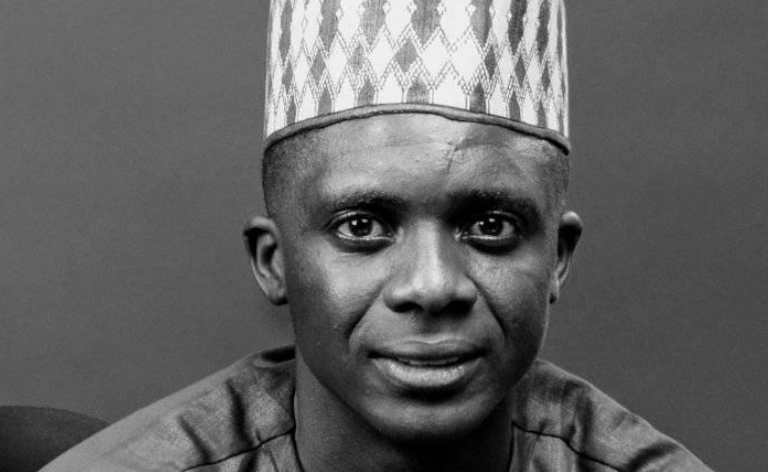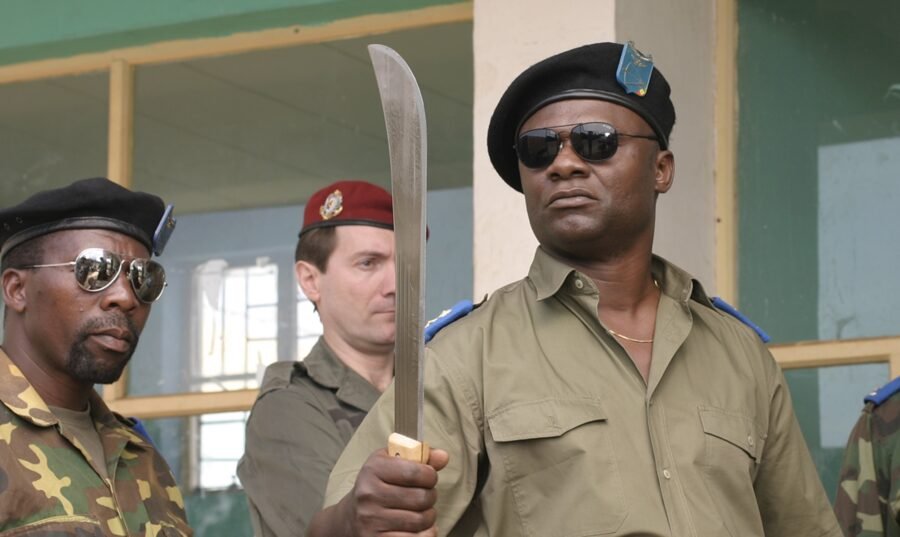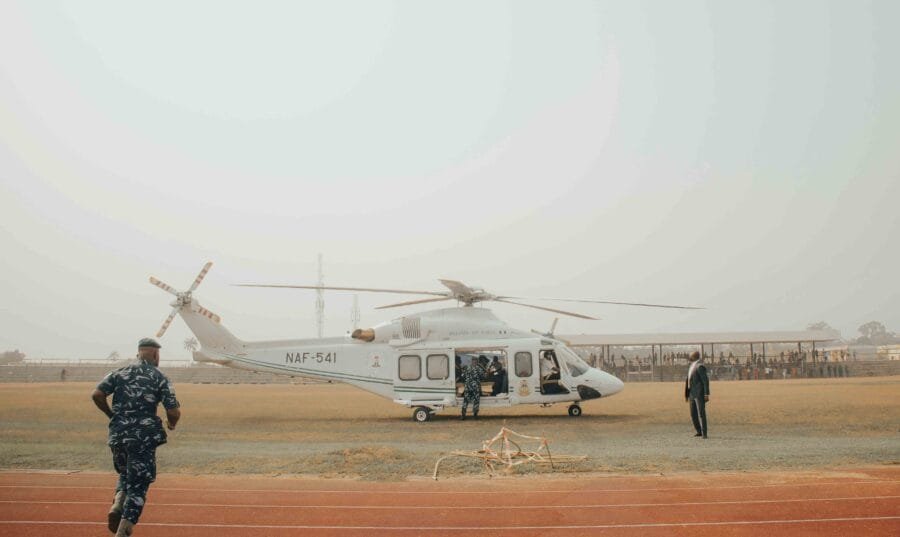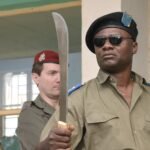Dirnan Samuel shares his experiences volunteering in IDP Camps around Plateau State

Terrorists have lately carried out a number of attacks in Nigeria’s middle belt region, most recently in Plateau. This has resulted in many refugees being labelled as Internally Displaced Persons (IDPs) and being forced to live in enormous IDP camps while hoping for the kindness of others. Dirnan Samuel, who has been working in IDP camps throughout Plateau state, spoke with Sarauta Network about his experience. We seek to alert individuals far away about what is going on and the critical humanitarian need for the impacted people.
Hello, Dirnan Please briefly tell us about yourself.
My name is Dirnan Lohlum Samuel; I am a young Nigerian from the Wase local government of Plateau State. Recently I have devoted time to volunteer with certain organizations that are keenly involved with critical issues bordering the displaced persons from attacks and killings in Barkin Ladi, Riyom and Bokkos local governments of Plateau state. The organizations are Stalwart communities Africa an Abuja Based NGO and Zawan Economic and Social Development Initiative (ZESDI).
Can you tell us what works specifically you did in relation to the IDP crisis in Plateau State?
I must say that it is exciting for me to volunteer and provide the little help I can to those that need it the most. These are people that are suffering from a fate that they never imagined and cannot still fathom. However, in volunteering with Zawan Economic and Social Development (ZESDI), I primarily was taking down data from registration of the displaced persons that were temporally being housed at the Geosciences Complex Anguldi, Zawan. Through this process, the basic needs of the IDPs were identified and the number of widows, widowers, orphans, pregnant women etc. was taken down. It was challenging to take down the names of people who had somewhat a complete life and all of a sudden they are reduced to living in unbearable conditions.
Furthermore, with stalwart communities Africa, an Abuja-based NGO that is focused on programs in Leadership, Education and Empowerment. I am part of a team that has gone to all the available and accessible camps in the state for a project known as the ‘i Jos care project’ which is focused on getting numerical data and demography of out-of-school children and all other critical needs of the displaced persons. At the moment resources are being put in place to get temporary schooling programs that will ensure that the children are not out of school completely.
What is a safe number estimate of the IDPs?
It is still very important to note that these people had original lives before and habitual schedules that kept them going. So at the camp, they can take permission from camp officials and find odd jobs in the surrounding areas to make some little money. And at the same time, there are others who may have found different places of abode which cause them to leave the camp. This has caused the figures to fluctuate a little from time to time. However, as we speak today (27th August 2018) the Geosciences camp in Anguldi is the most populated with 2,670 displaced persons. Next is the Cocin Rcc headquarters Bokkos with a total of 1416 (7th July 2018), Rawuru community camp had 921,Cocin Ban-heipang had 880, for the Kassa camp and Cocin Rcc Heipang camp. I don’t have an accurate figure, but they are not far from the ones mentioned above. So to give a safe number will be between seven and eight thousand Internally Displaced persons.
What Needs are there beyond Clothing, Shelter and Food in the IDP Camps?
The fact about internally displaced persons all over the world is that they have lost their place in providing shelter for themselves and also food and clothing. The most royal and highly placed people in the society can be reduced to nothing in times of conflict. This is not far from the situation in Plateau State; their needs are so enormous and supersede just food and clothes. The continued fix in one place for a period of two months today is tiling their minds with post-traumatic stress. Just the food and the condition of the toilets are enough to remind them that they are not in their homes and for those whose houses were burnt, they know they have no place to return to even after the crisis.
How would you gauge the response of both the government and private individuals to the IDP crisis?
The fact that their IDP camps house over a thousand people today is purely an effort of private organizations and contributions from individuals. Four out of the six mentioned IDP camps mentioned here are church auditoriums that have nothing to do with the government at any level. The majority of the donations of food and clothing have come from individuals and private organizations and so it is fair to say that IDP camps in the state have benefitted from the welfare and goodwill of private individuals. Organizations such as the red cross and emergency management agencies also maintain a presence at some of the camps across the state.
Also, the Plateau state government under the leadership of His Excellency Rt. Hon. Simon Bako Lalong has done well to go around some of the camps to have an on-the-spot assessment of the situation and the condition of the camps. Contributions were made and a committee has been set up to relocate the internally displaced persons to their original homes as soon as possible. Certain legislators at both state and national levels and public office holders have also extended their hands of fellowship through contributions and visits to the camps to cheer the displaced up, I am guessing this can be counted as a government effort.
Where have both groups fallen short?
The fact that the crisis broke out is a result of the government’s inability to carry out its responsibility of maintaining security for its entire people. So that is the first point I have identified. The failure of the government is allowing the attacks by whoever to get so bad that people are displaced. Secondly, the efforts the government has made in caring for the Internally Displaced Persons are very poor, if not for the efforts of churches, organizations and individuals, the situation would have been worse than it is today.
As for individuals and private organizations, the help cannot be too much. More can be done in the area of food donations and most importantly school teacher volunteers.
What misconceptions are there on Internally Displaced Persons by the Outside world?
The truth here is that if one has not been to any of the camps they can not in any way relate to the pains and ordeals that these people live in. At the Geosciences camp for example there is a temporally constructed toilet that way over two thousand people have to share, there is also a temporary cooking site where the food is being prepared that one can see as a quick fix to the rush hour. All of these were done before major help would come from the government. The point here is that some of the conditions the IDP camps are in currently cannot be compared to those we see on TV from other countries of Europe and America. the IDPs need us to move for peace and reconciliation so they can go back to their normal lives.
Beyond hunger and lack of clothing as well as healthcare, what are the other problems IDPs have that are not so obvious but as real as others? (Psychological, social, etc)
I have no reservations in saying that socialization and psychological problems are foremost among the many things that afflict the IDPs today. Food, shelter and clothing are the basic needs that man needs to survive in life and the fact that these men have lost them totally for no fault of theirs is a seriously traumatic experience that is not fathomable. So to remember that they cannot be in their own care, but in the contributions and solidarity support of other people is the worst experience that they are going through right now.
What is your advice to embittered Nigerians who are tired of the situation in the country and don’t really know what to do?
My foremost advice is for everyone to try as little as they can to assist as many people as they can. The need for food cannot be overemphasized because people need to eat and survive first before anything. The camps farther away from Jos are less reached probably because of distance and their remote nature, they have fewer food supplies, less clothing and poor sleeping conditions. Bokkos, Rawuru, and Heipang particularly.
Secondly, the lack of political will by the government at all levels to end the crisis and attacks has to be fought by all well-meaning individuals. Security is the business and essence of government and if they are not providing security to citizens then it is a collective responsibility of all to let them know through all possible channels, one of which you are doing now. As one of the elders we met at Rawuru camp told us, if the security challenges are not tackled once and for all, one day we would not find IDPs to assist the way we are doing now.
How can people still contribute to the care of the IDPs?
Food is the most needed item in all the camps currently, so as many people can contribute they should. Secondly, the education of children is another critical problem that needs to be tackled. Stalwart communities Africa is currently making efforts to create some school programs that will help give the kids education as school sessions resume. So as many can volunteer to teach and help out, it would be wonderful.
To contribute in any way to the care of these IDPs, you can take a trip down to one of the camps yourself. If you are far away, you can contact Dirnan at +2348134978306 and provide any little assistance you can.
You can have a look at past stories from this series here








